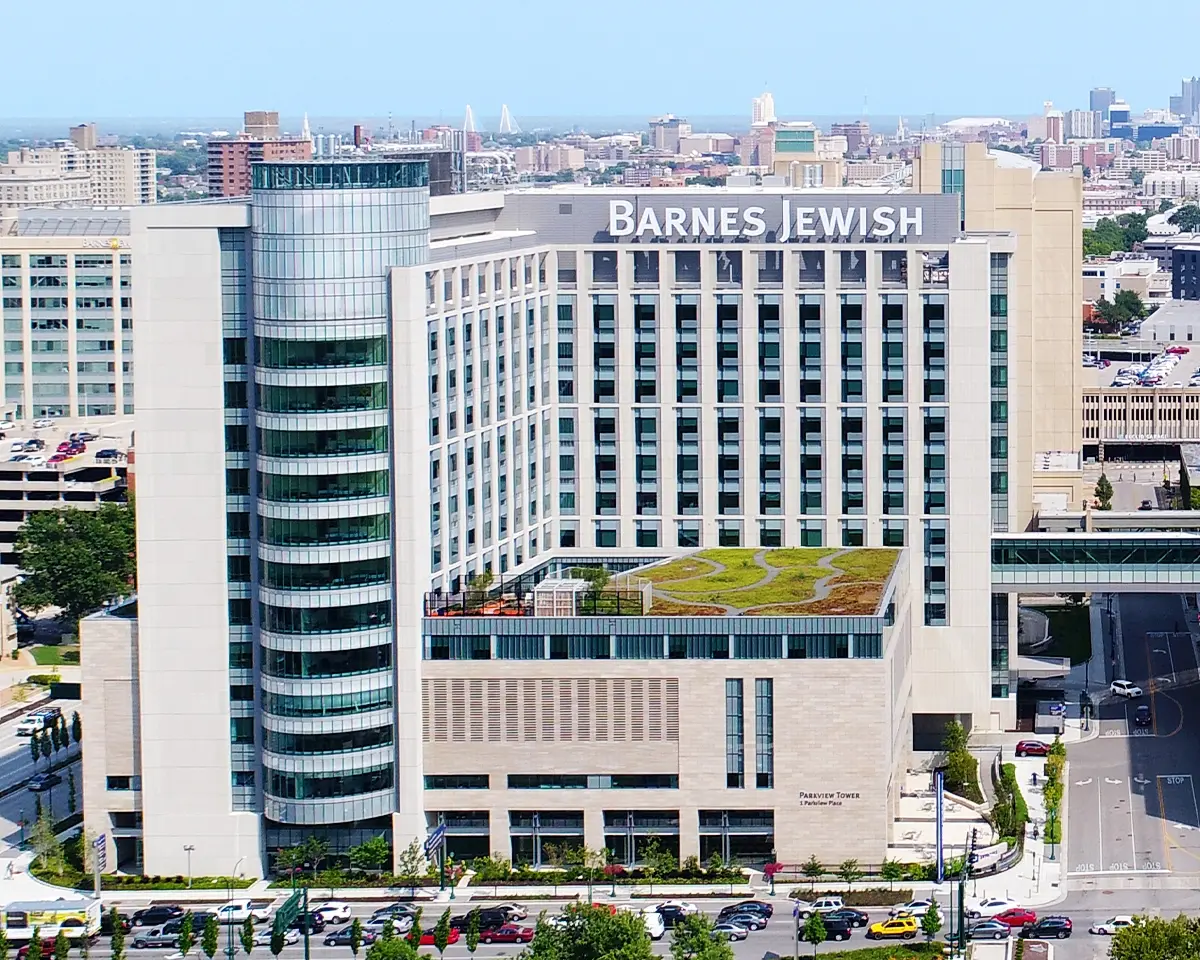Living Kidney Donation
Our living kidney donor experts perform more living kidney donor surgeries than any other program in the Midwest region. Our specialists offer personalized support and unmatched expertise to donors who consider this selfless act.
Washington University physicians deliver national leading transplant care at Barnes-Jewish Hospital and St. Louis Children's Hospital. Our comprehensive living donor program provides the highest level of care to living kidney donors. We offer:
Expertise: Providers at the transplant center helped pioneer living kidney donor transplants, giving them a depth of experience that leads to excellent short- and long-term results.
Convenience: Our living-kidney coordinator helps you navigate the entire evaluation process. Their personalized care makes the process convenient, friendly and efficient. We also accommodate out-of-the-area donors, allowing them to perform most of their eligibility testing at a location convenient for them.
Minimally invasive approach: Our team offers minimally invasive procedures for kidney donation surgery, meaning you have smaller scars and a quicker recovery.
Enhanced recovery protocols: Our research-backed recovery process allows living kidney donors to experience less pain after surgery. We work to make sure you are comfortable upon returning home.
Beth was diagnosed with Goodpasture syndrome. She needed a new kidney quickly. Beth received the gift of life thanks to a kidney donor and our transplant team.
Living donor transplants tend to happen sooner and with better results than deceased donor transplants, with minimal risks and drawbacks to the kidney donor.
Living donor kidney benefits include:
Higher transplant success rates: Living donor transplants result in shorter hospital stays and fewer complications than transplants from deceased donors.
Shorter transplant process: Most people wait at least three years for a deceased kidney to become available. Patients who receive a living donor kidney can bypass the waiting list. The transplant center team pursues a variety of paths to donation, and we are one of the few centers to see a recent increase in living donor kidney transplants.
Better organ function: Living donor kidneys last almost twice as long as kidney transplants from a deceased donor. On average, a kidney from a living donor functions for about 10 years longer than an organ from a deceased donor.
Low risk to kidney donor: Every surgery has risks, but we minimize that risk with our comprehensive evaluation process and extensive experience performing kidney donor surgery.
Minimal life disruption for donor: We offer minimally invasive surgical techniques and improved recovery protocols. These advances mean less pain and faster recovery for kidney donors. Most donors spend two days in the hospital after surgery and report feeling back to normal a few weeks later.
During the kidney donor evaluation, we aim to ensure the donation process doesn’t harm your health. Our comprehensive protocols give every live kidney donation the greatest chance of success.
Your donor evaluation may take one to six months to complete. The evaluation includes:
Donor matching: We explore multiple opportunities to match kidney donors with a suitable recipient.
Medical testing: You have several tests to ensure you are a good fit for surgery and have no underlying medical conditions that could complicate your recovery.
Counseling and support: You speak with a social worker or counselor to make sure you understand the risks and benefits of living kidney donation.
You and your kidney transplant specialist discuss the kidney donation procedure in detail, answering any questions you may have.
We admit you and the kidney recipient to the hospital on the morning of surgery. We place the two of you in adjoining operating rooms, allowing our team to complete the transplant faster and more successfully.
Shortly before going into surgery, we give you a mild sedative to help you relax. Our anesthesiology team then administers general anesthesia, keeping you safe and comfortable. Kidney donation surgery takes around four hours.
Our care team offers two minimally invasive options for donor surgery:
Mini-nephrectomy: This approach uses an open technique developed by Washington University surgeons. For this procedure, a surgeon uses a much smaller incision than was traditionally used to remove the donor’s kidney. We make the incision on the donor’s back (between the bottom rib and the hip). We close the small incision with dissolving internal stitches, shortening recovery.
Laparoscopic donor surgery: In this procedure, a surgeon makes three tiny incisions in the donor’s abdomen. These incisions make room for the surgical tools that we use to remove the donor kidney. These incisions generally heal quickly.
After the surgery is complete, you can expect:
Two- or three-day hospital stay
A two-to-three-week recovery, thanks to our research-backed recovery protocols that help patients heal faster
Comprehensive follow-up care through our donor follow-up clinic
After leaving the hospital, our specialists follow you closely to monitor your health. We also provide comprehensive support and guidance to ensure you have the resources needed for a smooth recovery at home.
Your long-term follow-up care includes:
Donor follow-up clinic: We coordinate your postsurgical medical care at our donor follow-up clinic. Most donors only need one follow-up visit at our clinic, but you must have annual labs for the first two years following a living donation.
Lifelong care coordination: Once you are past the initial recovery period, we transition routine care to your primary care physician. We work closely with your doctor to ensure you remain healthy after kidney donation surgery.
Support services: We provide a wide range of resources to support caring for living donors in the years following living kidney donor surgery.
 Barnes-Jewish Hospital
Barnes-Jewish Hospital
- Resource
Schedule your appointment
Call (314) 362-9355 or (800) 392-0936 for more information about our transplant services or to schedule an appointment.